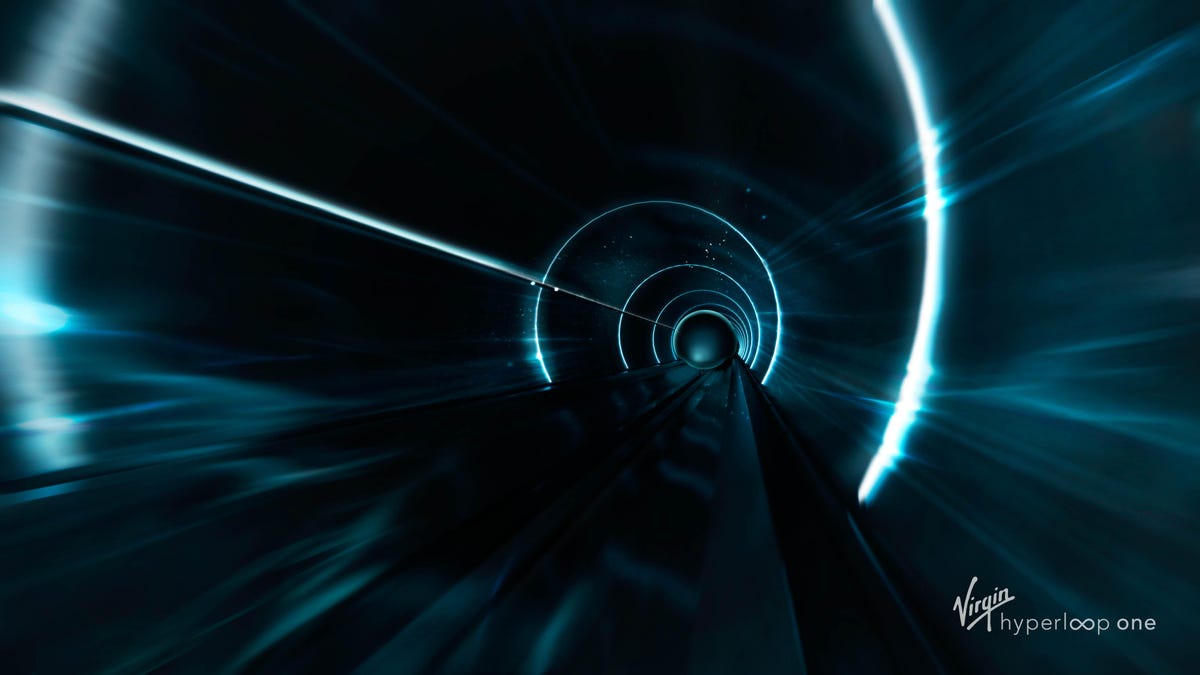Hyperloop speed records, broken down
A near-supersonic train is still just a pipe dream.

Virgin Hyperloop One has partnered with logistics company DP World to create a company to ship cargo via hyperloop.
Five years into the great hyperloop experiment, there's still more hype than hyper-speed.
Elon Musk open-sourced his white paper for a near-supersonic train-in-a-tube concept back in August 2013. Since then, a handful of companies, including Musk's own SpaceX and Tesla, have been working to build the hardware that could one day slingshot us from city to city around 20 percent faster than the top speed of most commercial airliners.
And after half a decade, the fastest hyperloop pod concepts are running a little faster than one-third of the top speed promised by Musk.
WARR Hyperloop, a team of German engineering students at the Technical University of Munich, just set a new speed record. On Sunday, they won SpaceX's 2018 hyperloop pod competition with a top speed of 284 miles per hour (457 kph).
But that record comes with a rather large caveat: The record-breaking pod is very small.
While the winning Hyperloop pod is only about the size of a child, the Richard Branson-backed Virgin Hyperloop One says it's tested its own full-scale version of hyperloop at 240 mph (386 kph). Which of these represents more progress toward the hyperloop dream remains to be seen.
Another startup, Hyperloop Transportation Technologies, has received lots of interest around the world and is currently building its test track in France with a promise to have a full-scale 1,050-feet long (320 meters) system running this year, followed by a track three times longer in 2019.
Canadian TransPod is also planning a test track and another effort that grew out of a Dutch team competing in the SpaceX competition is in the works in the Netherlands.
Oh, and one more thing. Despite the confusing moniker, the "Loop" system of tunnels and high-speed skates Elon Musk has proposed building to circumvent Los Angeles traffic is actually not a hyperloop system and would never go nearly as fast as the plans described here.
That's the status of hyperloop, five years in. Bookmark this page to see how things speed up in the months and years to come, we'll be updating it as the records fall in the future and keep you in the, uh... loop.
SpaceX simplified: What to know about Elon Musk's space company.
Crowd Control: A crowdsourced science fiction novel written by CNET readers.

